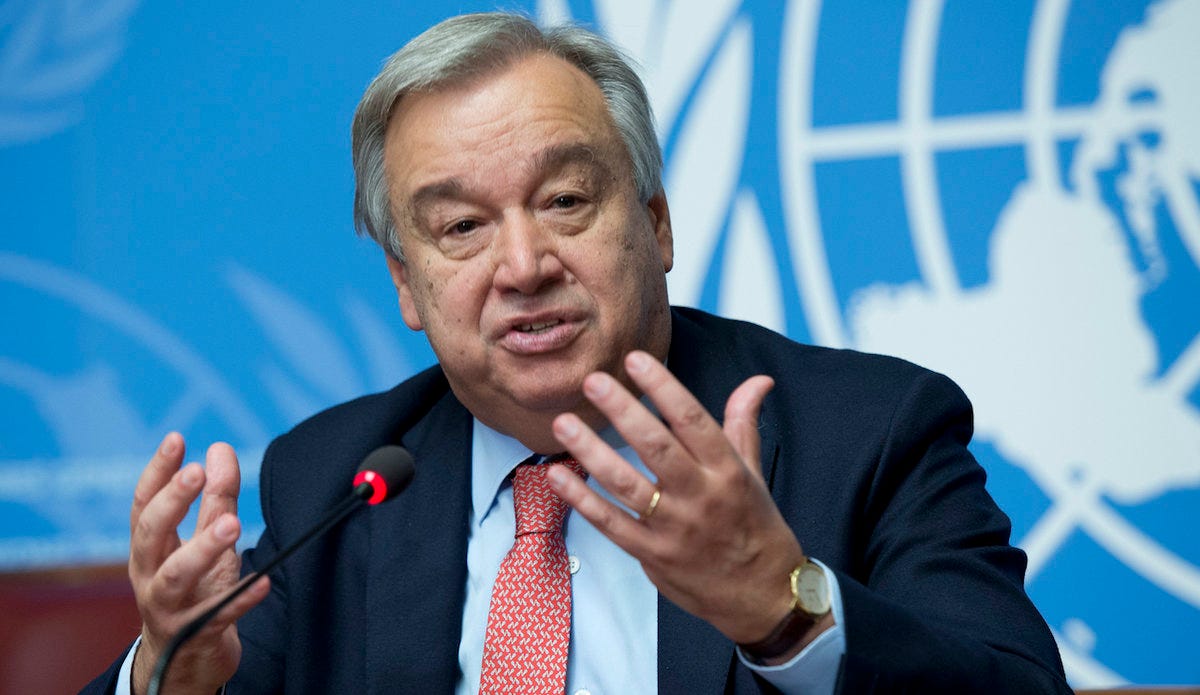Daily Multilateralism
Thursday, January 14, 2021
United Nations Secretary General Antonio Guterres has made clear this month his intention to seek a second term. Louis Charbonneau of Human Rights Watch argues that the United Nations should consider multiple candidates before endorsing a second term for the Portuguese politician:
The process should include multiple candidates who all publicly present concrete plans to improve the UN, including how to reinforce its human rights pillar at a time when some governments are actively working to undermine it.
Guterres’ performance on human rights over the past four years has been mixed, largely characterized by an unwillingness to publicly criticize rights-abusing governments by name and a preference for closed-door diplomacy.
As Amy Lieberman of Devex reports, few observers expect serious consideration of other candidates or controversy about a second term. While there have been occasional points of friction between powerful members and the UN chief, none of the permanent members appears seriously discontented with Guterres’ performance. Nor are there indications that there would be much support in the broader UN membership for changing leadership at this point.
Several United Nations agencies and nongovernmental organizations have announced a global stockpile of Ebola vaccine. Participants include the World Health Organization, UNICEF, and the International Federation of the Red Cross:
The stockpile is stored in Switzerland and ready to be shipped to countries for emergency response. The decision to allocate the vaccine will be made within 48 hours of receiving a request from a country; vaccines will be made available together with ultra-cold chain packaging by the manufacturer for shipment to countries within 48 hours of the decision. The targeted overall delivery time from the stockpile to countries is seven days.
Meanwhile, it is being reported that the the African Union has made a major Covid-19 vaccine purchase:
The acquisition of 270 million doses will complement the 600 million doses expected to be made available to Africa by the COVAX initiative, a World Health Organization and Gavi Vaccine Alliance initiative to help low- and middle-income countries to secure access to vaccines.
The new purchases with the doses from COVAX will provide Africa with just over half of the vaccine that it requires, according to the Africa Centers for Disease Control and Prevention.
At long last, the World Health Organization’s investigative team is wheels down in Wuhan. The Associated Press reports that the degree of freedom the multinational team will have to investigate the pandemic’s origins remains unclear:
Fifteen team members were to arrive in Wuhan on Thursday, but two tested positive for coronavirus antibodies before leaving Singapore and were being retested there, WHO said in a statement on Twitter…
The team includes virus and other experts from the United States, Australia, Germany, Japan, Britain, Russia, the Netherlands, Qatar and Vietnam.
A government spokesman said this week they will “exchange views” with Chinese scientists but gave no indication whether they would be allowed to gather evidence.
Earlier this month, Kenya began its two-year term on the UN Security Council this month. Umberto Tavolato sees potential for the country’s new status to spur multilateral engagement in a region where key players have struggled to work together:
[T]he Horn of Africa is a region where multilateralism has been weakening because of divisions among permanent members of the Security Council. The African Union and the Intergovernmental Authority on Development (IGAD) – the Horn’s regional organisation – are also finding mediating regional crises in the Horn of Africa more challenging than in the past. As the regional representative on the Security Council, Kenya will have the opportunity to bridge these gaps and strengthen international support in the Council for African-led peace and security efforts.
Banking on NATO: Disparities in defense spending within the NATO alliance has been a perennial cause of discontent. For decades, a succession of U.S. administrations have pushed European members to boost their spending. European military spending has ticked up in recent years, but the economic strains of the pandemic may well end that trend. Given this reality, Max Bergmann and Siena Cicarelli argue that the alliance should consider a multilateral bank to boost defense spending:
A NATO bank, while new for the alliance, would emulate the structure of other multilateral lending organizations. Yet instead of focusing on providing financing for international development as, for example, the World Bank does, it would focus on the defense sector to prompt defense modernization and fund multilateral investments. A NATO bank would leverage the creditworthiness of its wealthy members, enabling it to provide attractive low-interest, long-term loans to members lacking the resources to invest in critical alliance capabilities.
Briefly noted:
An examination of South American efforts to counter (mostly Chinese) squid fishing off their coasts.
Chinese foreign minister Wang Yi warns about the dangers of “pseudo-multilateralism.”
Could the continuing dispute between Japan and Korea over “comfort women” end up at the International Court of Justice?
The International Monetary Fund approved nearly $35 million for the Central African Republic.


